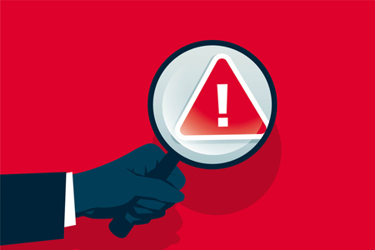An Expert Guide To Effective Sponsor Oversight In Clinical Trials
By Jessica Cordes, Clinical Excellence GmbH

Sponsor oversight and risk management play vital roles in maintaining data reliability, patient safety, and the effectiveness of clinical research. Effective sponsor oversight not only guarantees compliance with regulatory requirements but also enhances the overall quality of the clinical trial.
Sponsor oversight involves meticulous monitoring and management of various aspects of a clinical trial by the sponsor. This ensures that all clinical trial activities adhere to established protocols, procedures, ethical standards, and regulatory guidelines. The sponsor's oversight is crucial as it helps with selecting qualified investigators, providing necessary resources, and ensuring accurate data collection and reporting. Proper sponsor oversight is fundamental in ensuring patient safety by preventing deviations from the protocol, procedures, related functional plans, and regulatory requirements, which also can affect the clinical trial's reliability and data validity.
Risk management is an integral part of sponsor oversight. It includes identifying, assessing, and mitigating potential risks that could impact the clinical trial's outcomes or patient safety. Employing a risk-based approach allows sponsors to concentrate resources and efforts on the most critical aspects of the clinical trial, ensuring that risks are effectively controlled throughout the clinical trial's life cycle. This proactive management of risks helps in maintaining clinical trial quality and reliability, reducing the likelihood of adverse events, and ensuring regulatory compliance.
By combining thorough sponsor oversight with robust risk management practices, sponsors can significantly enhance the quality and reliability of clinical trials. This integrated approach not only safeguards participant safety but also ensures the data reliability and sponsor decision-making, ultimately advancing medical research and innovation.
Regulatory Framework And Guidelines For Risk Management In Sponsor Oversight
Effective risk management in sponsor oversight is underpinned by adherence to established regulatory guidelines, notably the International Council for Harmonisation (ICH) guidelines Q9(R1), E6(R3), and E8(R1). These guidelines provide comprehensive frameworks for Quality Risk Management, Good Clinical Practice (GCP), and General Considerations for Clinical Studies, respectively, emphasizing the pivotal role of risk management in ensuring participant safety and clinical trial integrity.
ICH Q9(R1) – Quality Risk Management
The ICH Q9(R1) guideline explains that Quality Risk Management involves a comprehensive process for identifying, evaluating, controlling, communicating, and monitoring risks related to any component of a clinical trial that could impact patient safety or the integrity of data and outcomes.
ICH E6(R3) - Good Clinical Practice
The ICH E6(R3) guideline outlines the responsibilities of sponsors in managing risks throughout the clinical trial life cycle. It emphasizes a risk-based approach to monitoring, where critical processes and data are prioritized based on their potential impact on participant safety and data integrity. By implementing a systematic risk management plan, sponsors can identify, assess, and mitigate risks proactively, ensuring that clinical trials are conducted in compliance with GCP principles.
ICH E8(R1) - General Considerations for Clinical Studies
The ICH E8(R1) guideline provides a broader perspective on clinical trial design and conduct, underscoring the importance of quality by design (QbD) and risk-based approaches. It advocates for the integration of risk management practices from the initial planning stages of a clinical trial, enabling sponsors to anticipate and address potential issues that could compromise the clinical trial outcome or participant safety. By aligning clinical trial objectives with regulatory expectations, sponsors can enhance the reliability and validity of their findings.
Definition And Scope Of Sponsor Oversight
According to the GCP guideline ICH E6(R3), the sponsor or investigator should maintain appropriate oversight or supervision of clinical trial activities to ensure clinical trial participants’ safety, reliable clinical trial results, and appropriate decision-making.
The range and extent of sponsor oversight measures should be fit for purpose and tailored to the complexity and risks associated with the clinical trial.
Sponsor oversight includes but is not limited to the following critical aspects:
Clinical Trial Design
When planning clinical trials, the sponsor should ensure that sufficient safety and efficacy data from nonclinical studies and/or clinical trials and/or real-world data are available to support human exposure by the route, at the dosages, for the duration, and in the clinical trial population to be studied.
Sponsors should incorporate quality into the design of the clinical trial by identifying factors that are critical to the quality of the clinical trial and by managing risks to those factors.
Sponsors should also consider inputs from a wide variety of stakeholders, including, for example, healthcare professionals and patients, to support the development plan and clinical trial protocols as described in ICH E8(R1) and when developing the informed consent material and any other participant-facing information.
The sponsor should ensure that all aspects of the clinical trial are operationally feasible and avoid unnecessary complexity, procedures, and data collection. Protocols, data acquisition tools, and other operational documents should be fit for purpose, clear, concise, and consistent, when applicable.
Provision of Resources
The sponsor should supply the necessary resources, including funding, personnel, and equipment, to support the clinical trial.
Throughout the clinical trial process, the sponsor should utilize appropriately qualified individuals for the activities to which they are assigned (e.g., biostatisticians, clinical pharmacologists, physicians, data scientists/data managers, auditors, and monitors).
The sponsor should have medical personnel readily available who will be able to advise on specific clinical trial-related medical questions or problems.
Selection of Qualified Investigators
The sponsor should ensure that investigators have the necessary qualifications and experience to conduct the clinical trial.
Selection of Service Providers
The sponsor should have access to relevant information (e.g., SOPs and performance metrics) for selection and oversight of service providers.
Agreements should clearly define the roles, activities, and responsibilities for the clinical trial and be documented appropriately.
Clinical Trial Processes
Clinical trial processes should be proportionate to the risks inherent in the clinical trial and the importance of the information collected. The quality and amount of the information generated in a clinical trial should be sufficient to provide confidence in the clinical trial’s results and support good decision-making.
The clinical trial processes should be operationally feasible and avoid unnecessary complexity, procedures, and data collection. They should support the key clinical trial objectives.
Clinical Trial Conduct
The sponsor should also ensure appropriate oversight of important clinical trial-related activities that are transferred to service providers and further subcontracted.
Investigational Medicinal Product
Sponsors should manufacture investigational medicinal products (IMPs) used in a clinical trial following applicable GMP standards and should maintain IMP quality standards.
Investigational products should be used per the protocol and relevant clinical trial documents (i.e., IMP handling instructions). The sponsor should implement adequate measures to ensure that the IMP is handled and shipped appropriately.
Data Acquisition
Computerized systems used in clinical trials should be fit for purpose, and factors critical to their quality should be addressed in their design or adaptation for clinical trial purposes.
Clinical trials should incorporate efficient and well-controlled processes for managing records through appropriate management of data integrity, traceability, and protection of personal information, thereby allowing the accurate reporting, interpretation, and verification of clinical trial-related information.
Clinical trial-related records should be retained securely by sponsors and investigators for the required period of time and should be available to regulatory authorities upon request to enable reconstruction of the clinical trial conduct and results to ensure the reliability of clinical trial results.
Data Collection and Reporting
The sponsor should ensure accurate and timely collection, management, and reporting of clinical trial data.
Protocol Compliance
Sponsors should monitor adherence to the clinical trial protocol, procedures, and regulatory requirements to maintain the clinical trial's reliability and validity.
In essence, sponsor oversight is fundamental in preventing deviations that could affect the clinical trial participant safety and clinical trial data reliability. It is a critical component in safeguarding the integrity of clinical research.
Risk Management In Sponsor Oversight
According to ICH E6(R3), clinical trial processes and risk mitigation strategies should be proportionate to the importance of the data being collected and the risks to clinical trial participant safety and data reliability.
The ICH Q9(R1) guideline on Quality Risk Management provides a comprehensive definition and framework for risk management within the context of pharmaceutical quality.
According to ICH Q9(R1), risk management is defined as:
"A systematic process for the assessment, control, communication, and review of risks to the quality of the drug (medicinal) product across the product life cycle."
This definition emphasizes the integral role of risk management in ensuring the quality and safety of pharmaceutical products. The guideline outlines key principles and tools to facilitate effective risk management, which include:
Risk Assessment
Risk assessment involves the identification and analysis of potential risks to the clinical trial. It includes:
- Risk Identification:
Sponsors must systematically identify potential risks that could affect patient safety (including rights and well-being), data reliability, and sponsor decision-making. This includes assessing factors such as clinical trial design, IMP characteristics, site capabilities, patient demographics, and more.
- Risk Analysis:
Sponsors must understand the nature of identified risks and determine their potential impact.
- Risk Evaluation:
Sponsors must compare the identified and analyzed risks against risk acceptance criteria. This evaluation helps sponsors to prioritize risks and allocate resources effectively and focus on the most critical areas.
Risk Control
Once risks are assessed, the next step involves implementing measures to control them. This includes:
- Risk Reduction:
Sponsors should develop and implement strategies to mitigate identified risks. This may involve modifying trial protocols, enhancing training for site staff, or increasing monitoring frequency for high-risk activities.
- Risk Acceptance:
Sponsors should decide which risks are acceptable and why based on established criteria.
Risk Communication
Effective communication of risks and mitigation plans to all stakeholders, including investigators, site staff, and regulatory authorities, is essential. Clear and transparent communication ensures that everyone involved understands their roles and responsibilities in managing risks.
Risk Review
Continuous review and risk monitoring throughout the clinical trial life cycle is essential to maintain control and adapt to new information or changes. This involves:
- regularly reviewing risk management outcomes,
- updating risk control measures as necessary, and
- ensuring continuous improvement of the risk management process.
The sponsor should regularly assess the effectiveness of the management plan and adjust clinical trial aspects as needed based on emerging information or clinical trial progress.
References:
ICH Q9(R1): Quality Risk Management
ICH E6(R3): Good Clinical Practice
ICH E8(R1): General Considerations for Clinical Studies
About The Author:
 Jessica Cordes started her clinical operations career in 2009, working at various companies including Big Pharma and several small to midsize biotech companies. She gained extensive experience on different levels from country study management, to global study management, and, since 2018, leadership in clinical operations. During her time at Medigene and Immatics, she structured the clinical operations department, built cohesive global teams, and implemented GCP and ATMP-compliant processes. For more than 12 years, she has been working in oncology clinical trials (including hemato-oncology as well as solid tumors) and with ATMPs since 2018. Since 2023, she has been working as an independent consultant and trainer, supporting small companies in building their clinical operations group and setting up their clinical trials for success. She provides a GCP refresher course via her Clinical Excellence Training Academy.
Jessica Cordes started her clinical operations career in 2009, working at various companies including Big Pharma and several small to midsize biotech companies. She gained extensive experience on different levels from country study management, to global study management, and, since 2018, leadership in clinical operations. During her time at Medigene and Immatics, she structured the clinical operations department, built cohesive global teams, and implemented GCP and ATMP-compliant processes. For more than 12 years, she has been working in oncology clinical trials (including hemato-oncology as well as solid tumors) and with ATMPs since 2018. Since 2023, she has been working as an independent consultant and trainer, supporting small companies in building their clinical operations group and setting up their clinical trials for success. She provides a GCP refresher course via her Clinical Excellence Training Academy.
